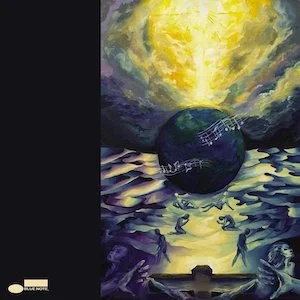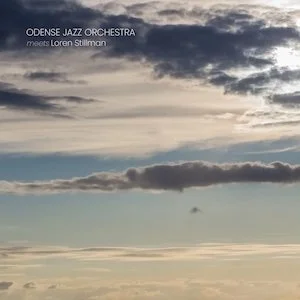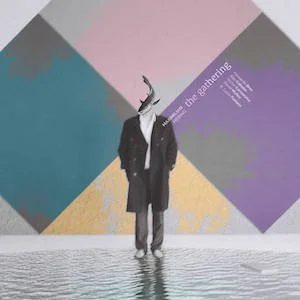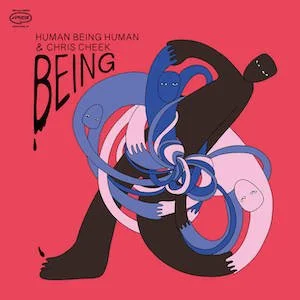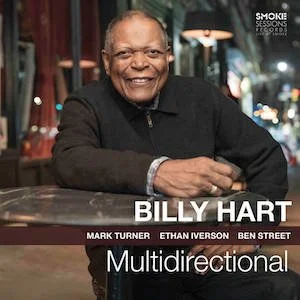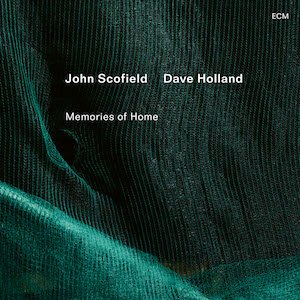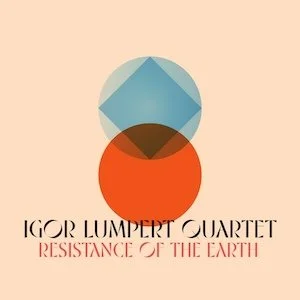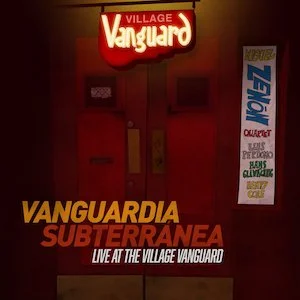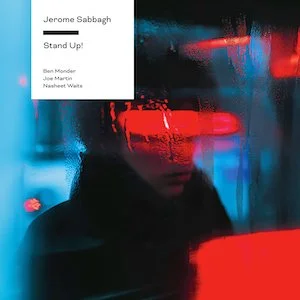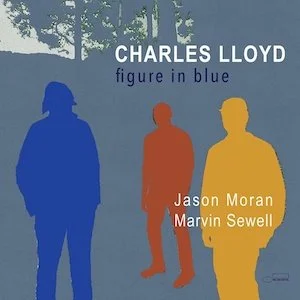Label: Blue Note Records, 2025
Personnel - Joel Ross: vibraphone, celeste (#1,11,17), mellotron (#17), glockenspiel (#1,11), drums (#11,12); Maria Grand: tenor saxophone; Josh Johnson: alto saxophone; Jeremy Corren: piano; Kanoa Mendenhall: bass; Jeremy Dutton: drums + Guests - Laura Bibbs: vocals (#11), flugelhorn (#17); Ekep Nkwelle: vocals (#12); Andy Louis; vocals, guitar (#13); Geoff Gallante: piano (#11); Brandee Younger: harp (#17); Austin White: electronics (#17).
Vibraphonist and composer Joel Ross has been steadily reshaping the contemporary jazz landscape with his extraordinary mallet work. Inspired by faith, devotion to God, and gratitude, Ross—who was deeply involved in Chicago’s Black church—offers a sonic manifestation of love and hope with Gospel Music, his fifth album for Blue Note Records. This 17-chapter interpretation of the biblical story unfolds through a core sextet composed of his Good Vibes group, joined here by alto saxophonist Josh Johnson (standing in for Immanuel Wilkins), alongside a handful of distinguished guests appearing on selected tracks.
“Wisdom is Eternal (For Barry Harris)” opens the album with a vamp built on a nine-beat cycle, its chanting saxophones moving in unison to add texture and melodic shape. The exquisitely expressive “Trinity” follows, propelled by a lively odd-meter groove that supports bravura turns by Ross, Johnson, pianist Jeremy Corren, and tenor saxophonist Maria Grand. An undercurrent of buoyant swing paves the way here.
“Protovangelium” begins anchored by Kanoa Mendenhall’s deep arco bass before shifting to pizzicato, gradually growing more tender and intimate, and ultimately returning to its initial depth. Subtle tempo inflections and impeccable teamwork are evident here, as well as on harmonically rich, more urgent pieces such as “Nevertheless” and “Word For Word”. The former highlights intricate melodies delivered with natural ease, while the latter leans into blues-inflected phrasing, vibrant rhythmic motion, and passionately voiced personal statements.
“Hostile” is a post-bop burner, driven by inexorable lines and a crisp, propulsive rhythm section, while “Repentance” thrives on carefully coordinated energy and contemporary openness, unfolding through instinctive, challenging vamps. The material is varied, and the ensemble approaches it with virtuosic command and a sense of calm, purposeful development.
The anthemic “A Little Love Goes a Long Way” marks a turning point in the album and leads into three consecutive vocal pieces. Frank Schoen’s “Praise to You Lord Jesus Christ” features Ross’s wife, Laura Bibbs, who first introduced the song to him. Betty King Johnson’s “Calvary” is beautifully rendered by vocalist Ekep Nkwelle, with Ross subtly destabilizing the rhythmic flow through additional percussion. “The Giver”, with lyrics by James Baldwin, is arranged as an intimate duet, pairing Corren with singer-guitarist Andy Louis.
There are other surprises, like “Be Patient”, which carries a Kurt Rosenwinkel’s Next Step vibe but with piano; and “The New Man”, which brims an ecstatic New Orleans kind of vibe. The closing chapter, “Now & Forevermore”, cools things down with a richly textured palette that includes harp, electronics, celeste, mellotron, bowed bass, and vibes.
Abounding in sophisticated harmonic turns and thoughtful structural design, Gospel Music is an artfully realized statement. Deeply personal yet broadly resonant, it fits seamlessly into Ross’s catalogue, affirming both his spiritual vision and his growing musical authority.
Favorite Tracks:
07 - Word For Word ► 12 - Calvary ► 15 - Be Patient

